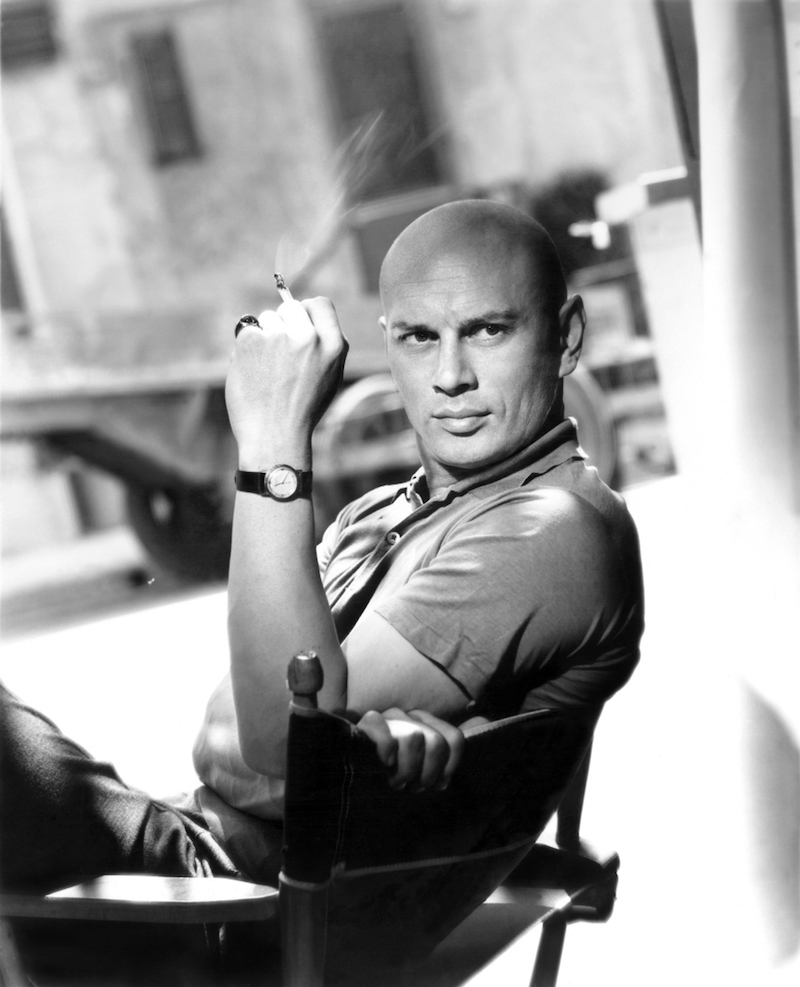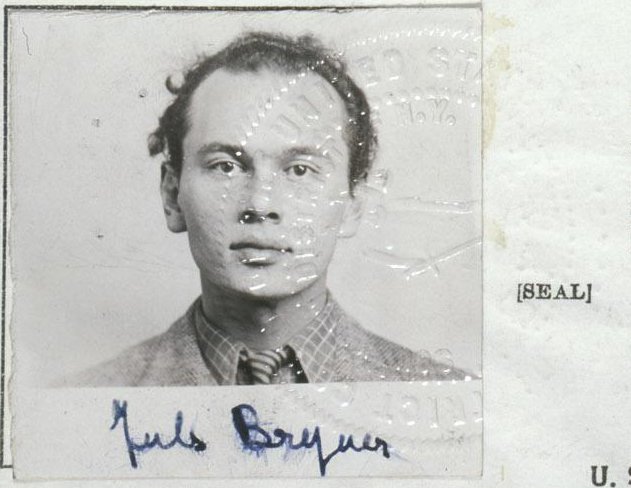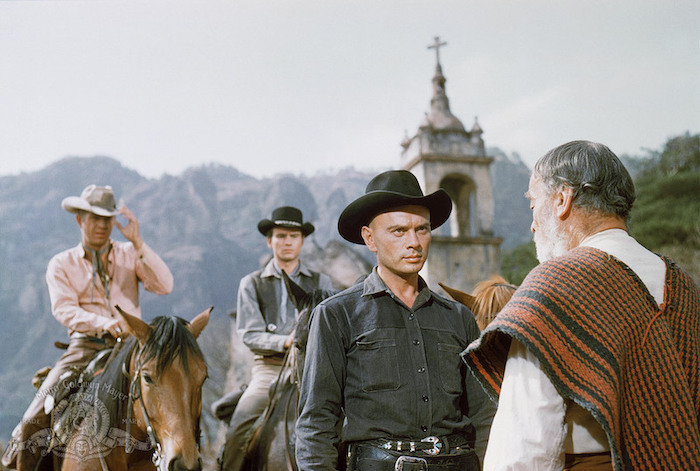With a low, refined voice, piercing dark eyes, and a rugged physicality, Yul Brynner’s on screen presence is beguiling. He enjoyed a varied career that allowed him to exhibit a wide range of skills. Whether it was playing gypsy jazz music in a smoky Paris cafe, directing and producing shows in the early days of television, or delivering epigrammatic lines astride a horse, Brynner lived a dozen lifetimes in his brief six decades.
 Brynner was born in Vladivostok, a city on the far eastern coast of Russia—the city is closer to Anchorage, Alaska than it is to Moscow. His father was an engineer and inventor with a Swiss, Russian, and Mongolian background. His mother was an actress and singer with Russian Romani ancestry.
Brynner was born in Vladivostok, a city on the far eastern coast of Russia—the city is closer to Anchorage, Alaska than it is to Moscow. His father was an engineer and inventor with a Swiss, Russian, and Mongolian background. His mother was an actress and singer with Russian Romani ancestry.
When Brynner’s father abandoned the family, he moved with his mother and older sister Vera to China for nearly a decade. She later took her children to Paris when tensions between China and Japan rose. During their European detour, Brynner worked as a circus trapeze artist and a jazz guitarist in Russian night clubs. With the imminent outbreak of war in Europe, the family emigrated to America.
 Brynner’s diverse heritage allowed him to readily adapt to new places and take on a wide variety of acting roles. He worked as a French-speaking broadcaster for the war office before landing a part in “Twelfth Night” with a Shakespearean troupe. He received good reviews for his Broadway debut, but had trouble landing more roles.
Brynner’s diverse heritage allowed him to readily adapt to new places and take on a wide variety of acting roles. He worked as a French-speaking broadcaster for the war office before landing a part in “Twelfth Night” with a Shakespearean troupe. He received good reviews for his Broadway debut, but had trouble landing more roles.
He began to hone his skills behind the scenes of the growing television media landscape. With this success, he was reluctant to audition for a role in the new Rodgers and Hammerstein musical, but he was convinced by his dear friend Mary Martin and by the strength of the script. His portrayal of King Mongkut was one that would come to define the role.
After a stunning success on Broadway, and winning the Tony for Best Actor in a Musical, Brynner heeded the call of Hollywood. The year 1956 would turn out to be his annus mirabilis. He was cast as the Pharaoh Ramses in Cecil B. DeMille’s epic The Ten Commandments, as his beloved King Monghut in a film adaptation of The King and I, and opposite Ingrid Bergman in Anastasia.
Deborah Kerr was cast to play opposite Brynner in The King and I. The sumptuous fabrics of Anna’s dresses alongside the silks of a Siamese harem saturated the screen. It was a splendid production befitting the beloved play, and Brynner was its heart as the strict but wise king who was willing to learn. The two characters—representing a meeting of eastern and western cultures—come to care for one another despite their differences. They allow themselves to let down their guard, just a bit, in order to better understand the true nature of their friendship.
Brynner won the Oscar for Monghut, becoming just one of ten people ever to earn a Tony and and an Academy Award for playing the same character.
With lavish sets, bright costumes, and innovative special effects, The Ten Commandments was a box office smash, and it remains one of the best-selling movie tickets ever. Brynner’s unusual look lent itself to an Egyptian pharaoh while his imposing figure underscored the unforgiving nature of character. Much about the film feels outdated to modern viewers, but upon its release it was truly a stunning achievement. The brash visuals, melodramatic score, and forthright performances wowed audiences.
Anastasia marked the Hollywood return of Ingrid Bergman. She had been blacklisted when her affair with Roberto Rossellini became public. For several years, she was relegated to European cinema. She chose the role of a lost princess with no memory of her past as the character to carry her return. And she starred with the equally daring and insanely popular Brynner. Their combination on screen was irresistible to audiences. Bergman won the Best Actress Oscar for Anastasia, indicating all was forgiven.
Brynner’s star was high as he made a foray into action films. In 1960 he found himself leading a ne’er-do-well group of gunslingers in The Magnificent Seven, an American Western adaptation of Kurosawa’s Seven Samurai. With his now trademark shaved head, Brynner plays a Cajun cowboy who agrees to help a victimized village in the old West. He is also the philosophical voice of the film, spearheading what he knows is a futile effort in the scheme of things.
Brynner donned his iconic ‘man in black’ cowboy attire once again for dystopian sci-fi thriller Westworld in 1970. Wealthy elite tourists vacation in Westworld in order to live out their Old West fantasies. They can play poker in a saloon and get in a gunfight with the sheriff, but it’s all perfectly safe… until the robot actors become sentient and begin to fight back. Brynner’s character leads the uprising as a menacing, angry cowboy.
 After a spate of spaghetti Westerns, in 1976 Brynner returned to the stage as his beloved King Monghut. He toured the world and racked up thousands of shows. The day of his 4000th performance, he was given a diagnosis of terminal lung cancer.
After a spate of spaghetti Westerns, in 1976 Brynner returned to the stage as his beloved King Monghut. He toured the world and racked up thousands of shows. The day of his 4000th performance, he was given a diagnosis of terminal lung cancer.
Brynner continued to present in The King and I until less than four months prior to his death at 65. He received a special Tony award that year, marking the tremendous achievement of 4,625 performances. As his final act, he partnered with the American Cancer Society to produce a PSA highlighting the dangers of smoking. The commercial ran in the days following his death.
Originally written for DVD Netflix
